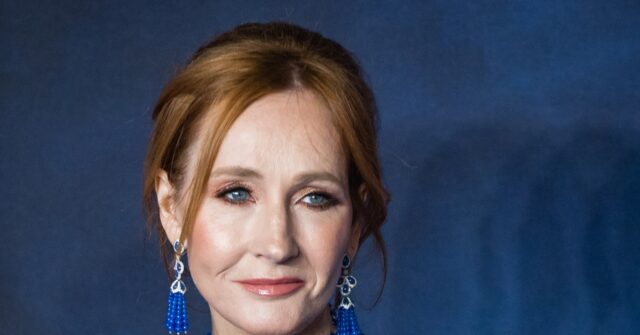J.K. Rowling has recently expressed her outrage on social media regarding a report indicating that hundreds of female athletes have lost medals and championships to transgender women. The report, published by the U.N.’s Special Rapporteur on Violence Against Women and Girls, highlighted that over 890 medals across 29 different sports had been awarded to men competing as women. Rowling cited these staggering figures in her post, describing the situation as a significant injustice, and calling the outcomes of these athletic contests into question. Her comments resonate with a growing number of people who express concern over the fairness of allowing biological males to compete in women’s sports, emphasizing the need for a reevaluation of policies surrounding transgender participation in athletics.
In a follow-up to her original post, Rowling engaged with a fan’s sentiments about the unfortunate reality for women losing competitive opportunities. She pointedly remarked that society seems to disregard the feelings of these women, suggesting that there is a misplaced focus on protecting the interests of transgender individuals at the expense of biological women. This perspective aligns with wider discussions on the implications of gender identity policies in sports, a topic that has stirred significant debate and controversy. Rowling’s stance reflects a belief that women should be prioritized in discussions around women’s athletics, and that inclusivity should not come at the cost of equality in competitive fairness.
The report authored by U.N. Special Rapporteur Reem Alsalen has sparked a considerable conversation about the participation of transgender women in female sports categories. Alsalen’s recommendations suggest that fairness and safety necessitate restricting women’s sporting events solely to biological females. This perspective has garnered support from various public figures, including Elon Musk, who commented on Rowling’s post, emphasizing the far-reaching consequences of the current discourse on gender identity in sports. Musk articulated concerns that this issue goes beyond just how many medals are won—that it also affects the safety, financial futures, career prospects, and aspirations of young female athletes. His comments indicate a belief that the current policies are harmful and undermine the achievements and rights of women in athletics.
Musk further lamented what he perceives as a societal shift that compromises women’s identities and achievements in favor of accommodating transgender narratives. He remarked on the troubling nature of attributing men’s violence or aggression to women’s success, suggesting that blaming women for striving for excellence is a nonsensical and regressive stance. This argument reflects a broader concern among many commentators that the movement to embrace more inclusive policies in sports and other areas of society may come at a critical cost to women’s rights and opportunities. Musk’s statements underscore a growing sentiment that women’s rights and protection are being overshadowed by a radical approach to accommodating transgender individuals.
Actor James Woods has also voiced his opposition to the current policies regarding transgenderism in sports, citing the U.N. report as a “violation” of Title IX, which was designed to protect and ensure equal opportunities for female athletes. Woods accused political figures who support these policies of prioritizing what he calls the “interests” of mentally ill men at the expense of women’s rights in competitive sports. His comments reflect a viewpoint held by many critics of transgender participation in women’s sports—concerns that the push for inclusion undermines the foundational principles of fairness that originally guided Title IX legislation.
As this conversation continues to evolve, the debate highlights the broader societal implications of gender identity and the complexity of athletic competition. Rowling, Musk, and Woods represent a faction of voices advocating for a stricter delineation between male and female athletic categories, arguing that the integrity of women’s sports must be preserved through exclusive competition. Their remarks spark important discussions about identity, fairness, and the future of women’s rights, further illuminating a contentious issue that impacts both the sporting world and the societal landscape at large. As varying opinions collide, it remains evident that the conversation surrounding transgender participation in sports is far from settled, suggesting the potential for ongoing dialogue and disputes in the years to come.

